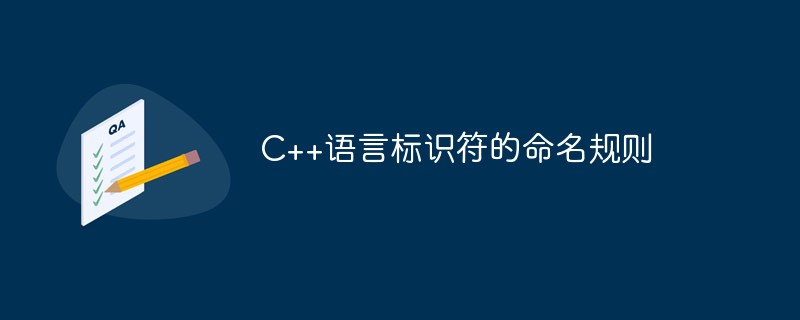
C The naming rules for language identifiers are: 1. The naming of identifiers should start with uppercase and lowercase letters or underscores [_]; 2. Try to name identifiers with meaningful words, etc., to increase the program’s Readability; 3. Try to capitalize the first letters of different words in the name of a variable.

The naming rules for C language identifiers are:
The identifier is a sequence of characters used to identify variables , functions, data types, etc. C language identifiers consist of numbers (0~9), uppercase letters (A~Z), lowercase letters (a~z) and underscores (_). The letters are case-sensitive. The following are things to note when naming:
1. The name of the identifier must start with a letter (uppercase or lowercase) or an underscore (_), and numbers cannot be used. It is not recommended to start names with an underscore, because many compilers define identifiers that start with an underscore.
2. C naming identifiers are case-sensitive. When using Hungarian nomenclature, try to capitalize the first letters of different words in the name of a variable.
3. Try to name identifiers with meaningful words to increase the readability of the program.
4. C identifiers are often used for:
1). To identify the name of an object or variable
2).Members of classes, structures and unions
3). Member function of a function or class
4) Custom type name
5). Name of the macro
6). Parameters of the macro
5. To understand Hungarian nomenclature
Recommended tutorial: "C Video Tutorial"
The above is the detailed content of What are the naming rules for C++ language identifiers?. For more information, please follow other related articles on the PHP Chinese website!
 How to solve the invalid mysql identifier error
How to solve the invalid mysql identifier error
 What are Python identifiers?
What are Python identifiers?
 What are the differences between c++ and c language
What are the differences between c++ and c language
 Recommended learning order for c++ and python
Recommended learning order for c++ and python
 Cost-effectiveness analysis of learning python and c++
Cost-effectiveness analysis of learning python and c++
 Is c language the same as c++?
Is c language the same as c++?
 Which is better to learn first, c language or c++?
Which is better to learn first, c language or c++?
 The difference and connection between c language and c++
The difference and connection between c language and c++